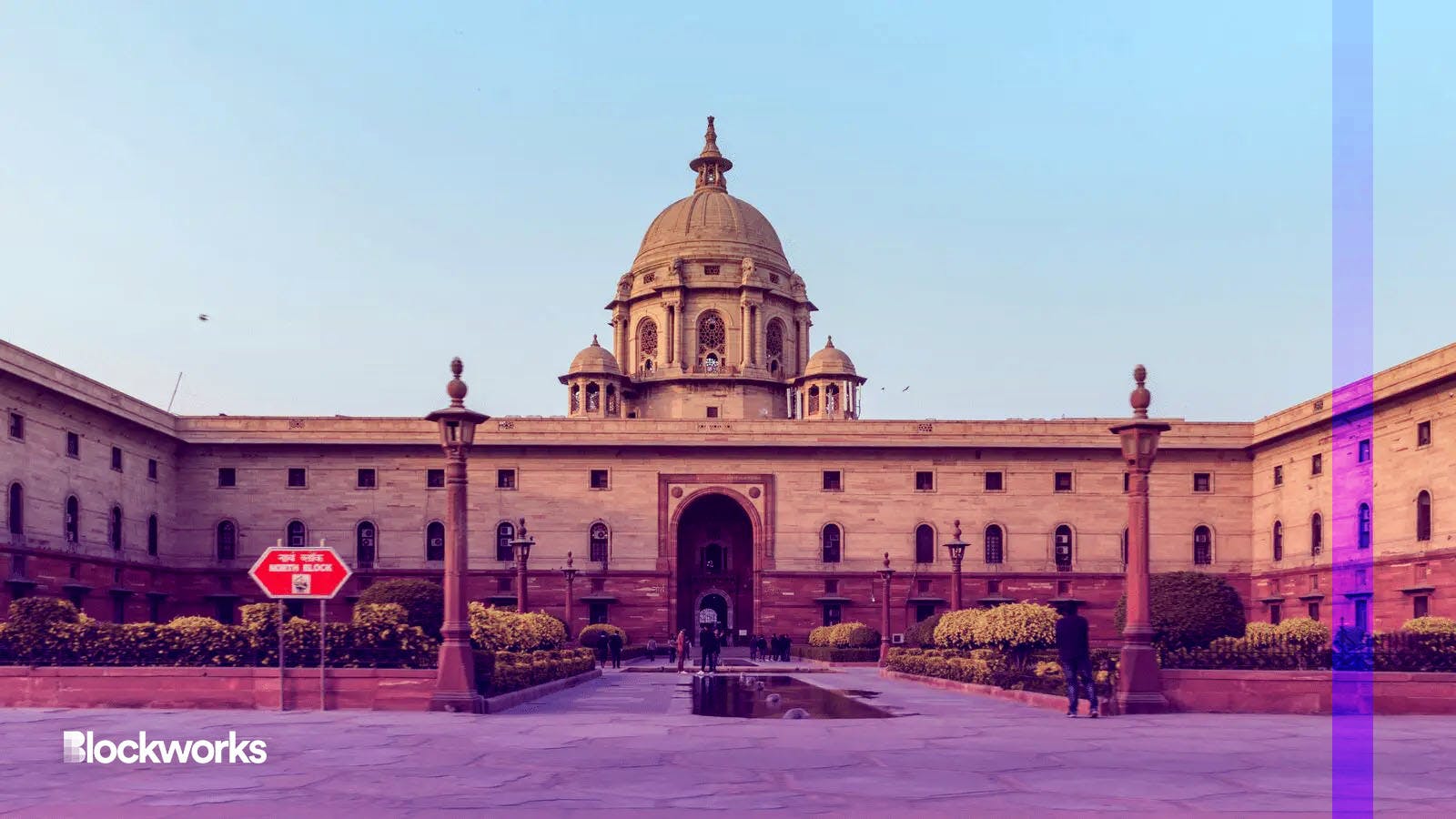India Keeps Crypto Tax Provisions in New Budget
“The onus of deducting TDS has been on crypto exchanges or on the user (if using P2P or other means), but until now there was no penalty for non-deduction,” CoinSwitch’s CEO said

Central Secretariat, New Delhi, India; Source: Shutterstock / Alex Waltner Photography, modified by Blockworks
India announced its annual budget for the year 2023-24 on Wednesday, introducing a penalty for individuals that avoid paying taxes on cryptoassets.
The budget, which details the government’s fiscal roadmap for the upcoming year, set out several priorities covering infrastructure and investment, green growth, youth power and the financial sector.
“The Union Budget 2023 has unveiled several new policies and initiatives designed to foster growth through digital transformation. It’s great to see the financial sector as one of the seven priority sectors in the budget,” Ashish Singhal, CEO at CoinSwitch, said in a statement.
Anticipating the upcoming budget, several Indian-origin CEOs and investors had hoped the budget would bring in a deduction in crypto-related tax, but policymakers didn’t oblige. India had established a crypto tax slab effective July 2022, requiring investors to pay a 1% tax deducted at source (TDS), on top of a flat 30% tax on crypto profits, on the transfer of virtual digital assets.
“A reduction in 1% TDS to 0.01% would have helped the millions of traders in India,” WazirX CEO Nischal Shetty said on Twitter, and indicated that he expects the country to wait until global regulations are clearer.
Meanwhile, Singhal noted that although the TDS of 1% for crypto transactions remains as it was, a clarification should be made.
“The onus of deducting TDS has been on crypto exchanges or on the user (if using P2P or other means), but until now there was no penalty for non-deduction,” he said.
“This is to say, don’t try to avoid TDS by using offshore or non-compliant platforms. You may be penalized as per Section 271C of the Income Tax Act. If you are investing in crypto, use a tax-compliant platform.”
The government doesn’t mention cryptocurrencies specifically in its Income Tax Act, but refers to them as “virtual digital assets.”
Notably, the budget has introduced a penalty for offenders or platforms that don’t pay up TDS on VDAs through an amendment to Section 271C of the Income Tax Act.
From April 1, people failing to pay up TDS could be fined in the amount of the liability or get jail terms of between 3 months to 7 years.
Get the news in your inbox. Explore Blockworks newsletters:
- The Breakdown: Decoding crypto and the markets. Daily.
- 0xResearch: Alpha in your inbox. Think like an analyst.






